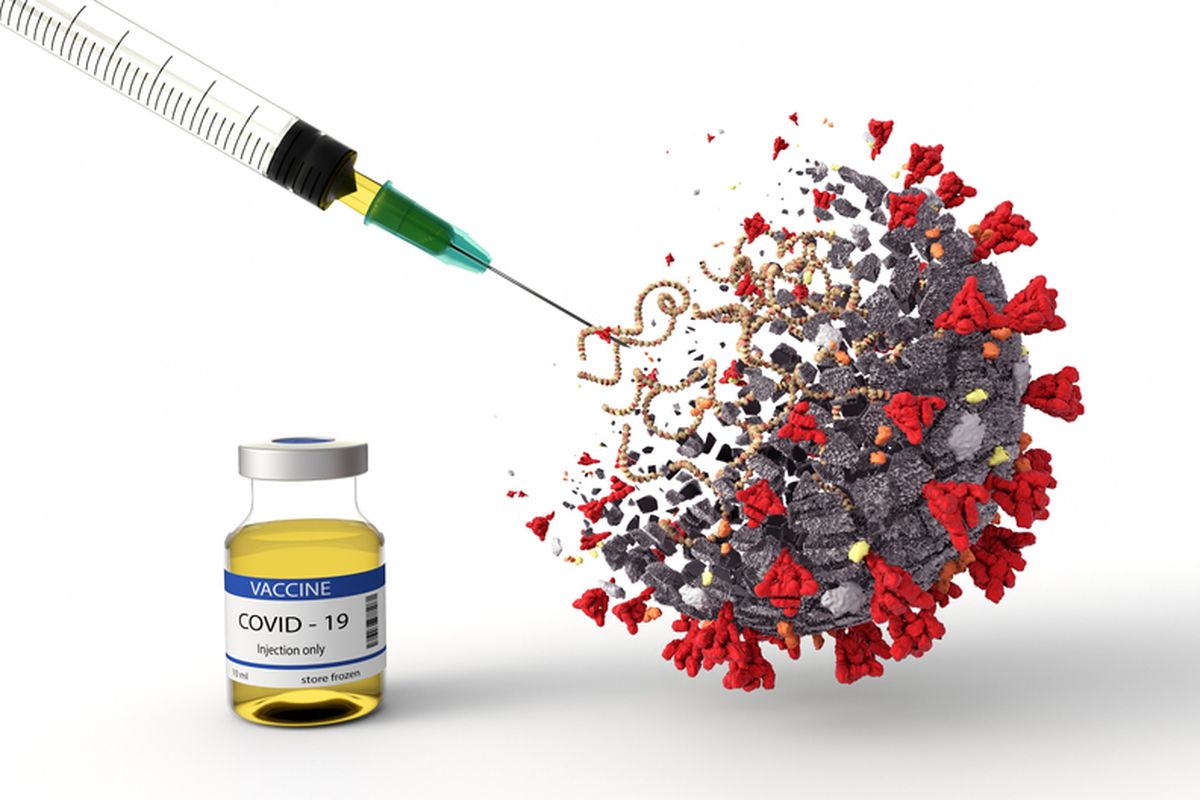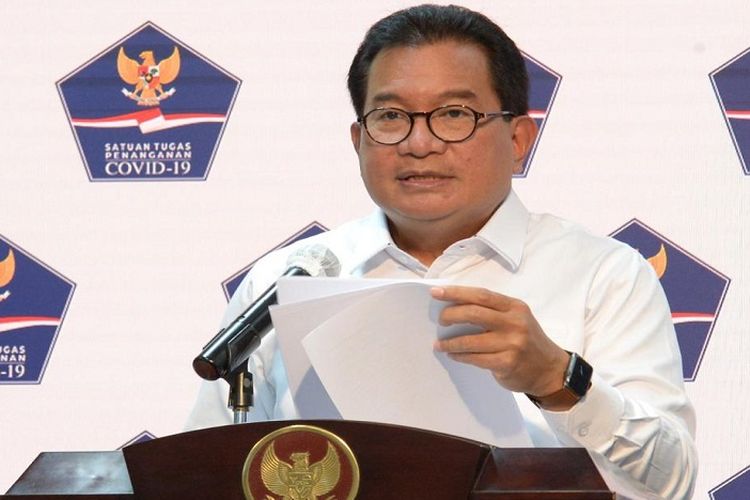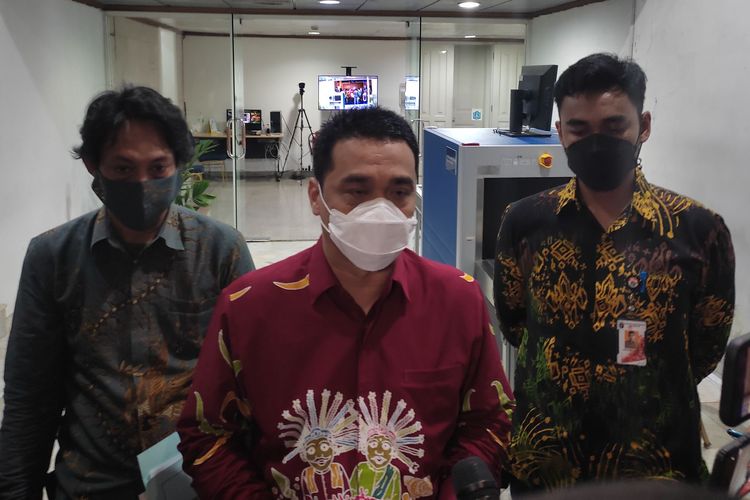Indonesia Highlights: Indonesia’s Covid-19 Task Force: Vaccines Effective Against All Covid-19 Variants | Jakarta to Continue Trial Face-to-Face Classes in Schools | BIN: 85 Percent of Indonesian Mill

JAKARTA, KOMPAS.com – Indonesia’s Covid-19 Task Force maintained that vaccines in Indonesia, such as Sinovac and AstraZeneca, can effectively resist coronavirus mutations such as the Delta variant from India that is found in the country.
The Jakarta Provincial administration announced that it will continue plans for face-to-face classes, though three schools shut down the program after their teachers tested positive for Covid-19.
And the State Intelligence Agency or BIN estimated that 85 percent of young people have been exposed to radical thinking, particularly on social media. This and more on Indonesia Highlights:
 Indonesian Covid-19 Task Force spokesman Professor Wiku Adisasmito ate a press briefing (12/11/2020)
Indonesian Covid-19 Task Force spokesman Professor Wiku Adisasmito ate a press briefing (12/11/2020)Indonesia’s Covid-19 Task Force: Vaccines Effective Against All Covid-19 Variants
Indonesian Covid-19 Task Force spokesman Wiku Adisasmito has assured the Indonesian public that Covid-19 vaccines used in Indonesia are effective in protecting against the Delta variant of Covid-19 or B.1.617.2, as well as other coronavirus strains.
“The effectiveness rate of the Covid-19 vaccines used in Indonesia, such as Sinovac and AstraZeneca, is higher than 50 percent," he said on Tuesday.
However, Wiku noted that “like all viruses, Covid-19 mutates to defend itself. The mutation process will occur constantly as long as the potential for transmission exists".
Indonesian Minister of Health Budi Gunadi Sadikin confirmed that the Delta variant of Covid-19 is one of the most widely spread strains of the coronavirus in Indonesia.
“The Delta strain of the coronavirus is found in Jakarta, after it was identified as the source of coronavirus clusters in Kudus Regency, Central Java and Bangkalan Regency on East Java province’s Madura Island.”
Budi noted that the transmission of the Delta variant of the coronavirus is quicker, though not more deadly, than other Covid-19 strains such as the Alpha strain from Great Britain or the Beta variant from South Africa.
 Jakarta Deputy Governor Ahmad Riza Patria meets the press at Jakarta City Hall on Thursday (10/6/2021)
Jakarta Deputy Governor Ahmad Riza Patria meets the press at Jakarta City Hall on Thursday (10/6/2021)Jakarta to Continue For Trial Face-to-Face Classes in Schools
Deputy Jakarta Governor Ahmad Riza Patria has announced that schools in the capital will continue the second stage trial period of face-to-face classes from June 9 to 26,.
“The limited face-to-face classes are an invaluable in educating the public on health protocols [in schools],“ said the Gerindra Party politician on Tuesday of the schools, which are gearing up for the 2021-2022 school year next July.
However, State Elementary School No. 08 or Kenari Elementary School decided to stop face-to-face classes, after school principal Hardi Priyono and two teachers recently tested positive for Covid-19.
“One of the teachers showed symptoms of Covid-19 and was confirmed positive for the coronavirus,” Hardi said. “We then tested [Kenari School’s] faculty and staff, then found that a teacher and myself also tested positive [for Covid-19].”
He added that none of the students tested positive for Covid-19.
Jakarta has carried out the second stage trial period for face-to-face classes in 226 schools which passed the Jakarta Education Services and Covid-19 Task Force’s assessment.
However, three schools, including Kenari Elementary School, halted face-to-face classes for various reasons, ranging from their proximity to red zones, and teachers testing positive for Covid-19.
Source:
 Illustration of radicalism
Illustration of radicalismBIN: 85 Percent of Indonesian Millennials Exposed to Radicalism
The Indonesian State Intelligence Agency or BIN has disclosed the vulnerability of the country’s millennials to radical ideologies, as laid out in a recent survey by the National Counterterrorism Agency (BNPT).
“The BNPT survey found that 85 percent of [Indonesian] millennials are exposed to radical [ideologies] through social media,” said BIN official Wawan Hari Purwanto on Tuesday. “Social media is an incubator and an outlet to spread radicalism.“
Wawan added that BIN focused on the issue of youth and radicalism, because they make up a ‘bonus demographic’, or substantial segment of the population, that is of working age.
Aside from radicalism, Wawan identified Papuan separatism, cyberattacks, the spread of hoaxes, and communal or sectarian conflicts as other threats to Indonesian national security.
“Cyberthreats [to Indonesia] is inevitable, as internet penetration of the population continues at a rapid pace. We highlighted cyberthreats and hoaxes as threats, because information could spread quickly and unchecked,” he reminded.
Wawan asserted that BIN also identified the Covid-19 pandemic as a potential national security threat, that “threatens public safety and hampers economic growth.
Source:
Simak breaking news dan berita pilihan kami langsung di ponselmu. Pilih saluran andalanmu akses berita Kompas.com WhatsApp Channel : https://www.whatsapp.com/channel/0029VaFPbedBPzjZrk13HO3D. Pastikan kamu sudah install aplikasi WhatsApp ya.































